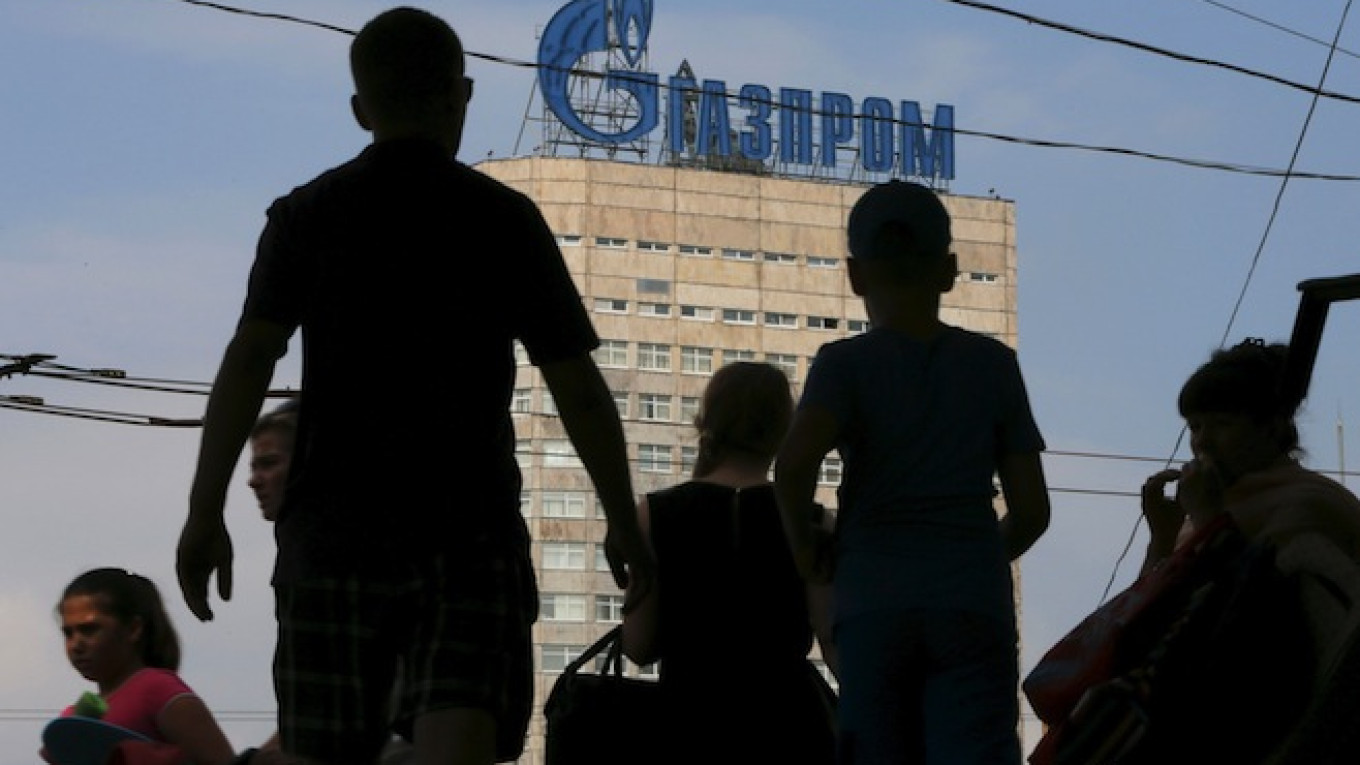Russia's Gazprom has bolstered its industrial presence in the heart of Europe with two major gas deals that were announced on Friday despite ongoing tensions with Moscow over the conflict in eastern Ukraine.
The first of the deals, an asset swap with German chemicals group BASF that gives Russia greater access to gas trading and storage in Germany, was a surprise as the companies had abandoned it only nine months ago, citing a “difficult political environment.”
Pressed on what had changed since, BASF declined to respond directly. Its oil and gas production unit Wintershall, which will secure more stakes in Siberian gas fields under the swap, said only that it was convinced that Russian natural gas would help ensure energy security in Europe.
The second deal would double the capacity of the Nord Stream pipeline to deliver gas to Europe through the Baltic Sea, bypassing Ukraine.
The German government warned against interpreting the deals as a sign that relations with Russia were improving, saying there was no link with the Ukraine crisis or Western sanctions against Moscow.
"These are company decisions that the German government has no influence over and does not try to influence," said Martin Schaefer, a spokesman at the Foreign Ministry.
The European Union has talked about loosening Russia's grip on the EU's gas supply. It currently supplies one-third of the gas used by the bloc.
Gazprom abandoned its South Stream pipeline project, designed to deliver gas from Russia to Europe via the Black Sea and Bulgaria, last year under EU pressure. The EU has instead encouraged the development of alternative supplies from the Caspian Sea and the United States.
But the Nord Stream agreement with a group of Western energy companies — Germany's E.ON and BASF/Wintershall, Austria's OMV, ENGIE of France and Royal Dutch Shell — ensures that new pipeline capacity from Russia will come online in 2019.
"The fact that the global energy majors participate in the project bespeaks its significance for securing reliable gas supply to European consumers," said Gazprom chairman Alexei Miller in a statement.
BASF shares were down 2.6 percent, in line with the decline in the German blue-chip DAX index.
The deals come at a time when many Western companies are reducing their exposure to Russia because of sanctions and broader weakness in the Russian economy.
But there have been tentative signs of an easing of tensions with the Kremlin in recent months.
German officials have praised Russia's approach during talks to seal an accord over Iran's nuclear program. They say Moscow has also shown signs that it is prepared to play a more constructive role in discussions over how to resolve the civil war in Syria — the source of many of the hundreds of thousands of migrants heading for Europe.
'Trustful Partnership'
Separately, OMV, a long-standing partner of Gazprom, reported progress in its own asset-swap talks with the Russian gas monopoly.
OMV chief executive Rainer Seele, a German who recently joined the Austrian firm after many years at BASF, spoke of extending a “trustful partnership.”
Shell's CEO Ben van Beurden, partner to the pipeline deal, stressed Europe's dependence on Russia.
"New projects like Nord Stream 2 are needed to ensure that Europe's demand for energy is met, especially as gas production in Europe itself is falling," he said.
But Nord Stream 2 will come online just as a rival pipeline is supposed to bring Caspian gas to Europe, boosting competition for market share in the bloc and loosening the ties between politics and energy security.
New liquefied natural gas (LNG) exports from the United States should also be in full swing by then and likely landing on Europe's shores in significant volumes, a development which could challenge Russia's energy dominance.
Under the swap deal, Gazprom will receive 50 percent of oil and gas producer Wintershall Noordzee, most of whose assets are Dutch but one of whose platforms is operated in British waters.
Britain's Energy Ministry said it would examine the deal as closely as “any deal involving assets within British waters.”
Warburg Research said the swap deal should be positive for BASF in the medium to long term, as future cash flow from the gas fields surpasses that from the swapped assets.
A Message from The Moscow Times:
Dear readers,
We are facing unprecedented challenges. Russia's Prosecutor General's Office has designated The Moscow Times as an "undesirable" organization, criminalizing our work and putting our staff at risk of prosecution. This follows our earlier unjust labeling as a "foreign agent."
These actions are direct attempts to silence independent journalism in Russia. The authorities claim our work "discredits the decisions of the Russian leadership." We see things differently: we strive to provide accurate, unbiased reporting on Russia.
We, the journalists of The Moscow Times, refuse to be silenced. But to continue our work, we need your help.
Your support, no matter how small, makes a world of difference. If you can, please support us monthly starting from just $2. It's quick to set up, and every contribution makes a significant impact.
By supporting The Moscow Times, you're defending open, independent journalism in the face of repression. Thank you for standing with us.
Remind me later.


